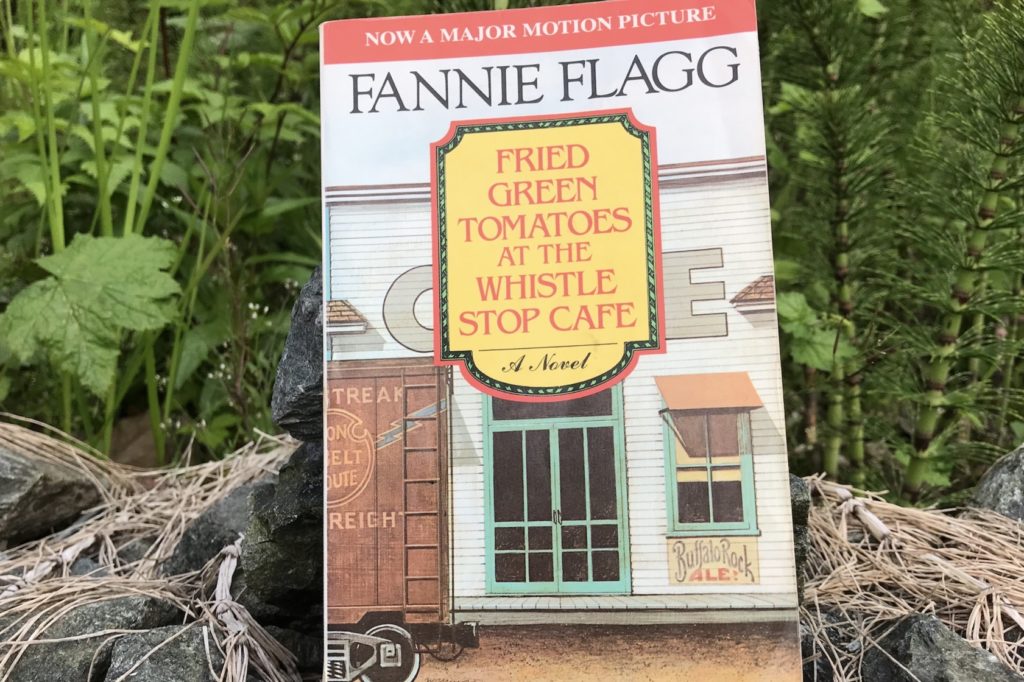This review is a bit of a cheat. It’s the end of the school year and while I have been reading for pleasure, I’m not sure I have the capacity to write an intellectually stimulating review that will do justice to any of the books I’ve just read.
So, given that it’s the end of the school year, which means it’s also almost summer, I’m offering a review from my heart and soul (rather than from my brain) of a book that is one of my favorite summer reads and simply one of my favorite books of all time.
The first time I read Fried Green Tomatoes at the Whistle Stop Café by Fannie Flagg, I was in high school. I’m not sure how I happened upon it, but I fell in love with it immediately. It felt like a cozy blanket. It’s possible that, at the time, the sweet tale of two women sharing a life together spoke to a part of me that had yet to come fully to the surface. It’s more than possible. But it’s also just a wonderful story with a cast of the most charming characters, an equally charming setting, and a perfect mix of comedy, heartache, and mystery.
Over the years, I have read this book several times—it is often my ‘easing into summer’ book. The novel is set in Alabama in the 1930s and the 1980s. It is at once the tale of two women, Idgie and Ruth, who run the Whistle Stop Café and become the beating heart of their small town, and the story of Evelyn, who is suffering mid-life woes and gains inspiration from a much older woman who knew Idgie and Ruth and shares their story with Evelyn. The book was written in 1987 and holds up well, save for some outdated views of weight loss. I should mention, too, that there is frequent use of the ‘n’ word, given the time and locale. But issues of race and sexism and queerness are woven into the story in a way that feels natural, and I always appreciated that the relationship between the two women was treated as a matter of fact, even in their tiny, Southern, 1930s town.
The novel’s chapters are a mixture of reports from various news outlets, such as “The Weems Weekly” (Whistle Stop’s weekly bulletin), and narrative set in various locations, at various times, and from a variety of perspectives. Though the tone lands on the side of cheeky and hilarious, I’ve cried many times over this book, and I am always sad when I turn the last page of the story. Until, that is, I remember that the end pages are filled with southern recipes such as Fried Okra, Sipsey’s Southern Fried Chicken, and, of course, Fried Green Tomatoes. I’ve tried making fried green tomatoes—I don’t love them, but something about those recipes always manages to soothe my regret over finishing the book.
At a recent author event I did, the moderator asked me what book is “home” for me. Though I’d never been asked this question before, the answer came to me easily. And though Flagg’s book is set far, far away from my actual home, I still find such deep comfort in it, and with the world the way it is, I’m finding that I need to take comfort wherever I can. So, read the book, a little offering of comfort from me to you.

